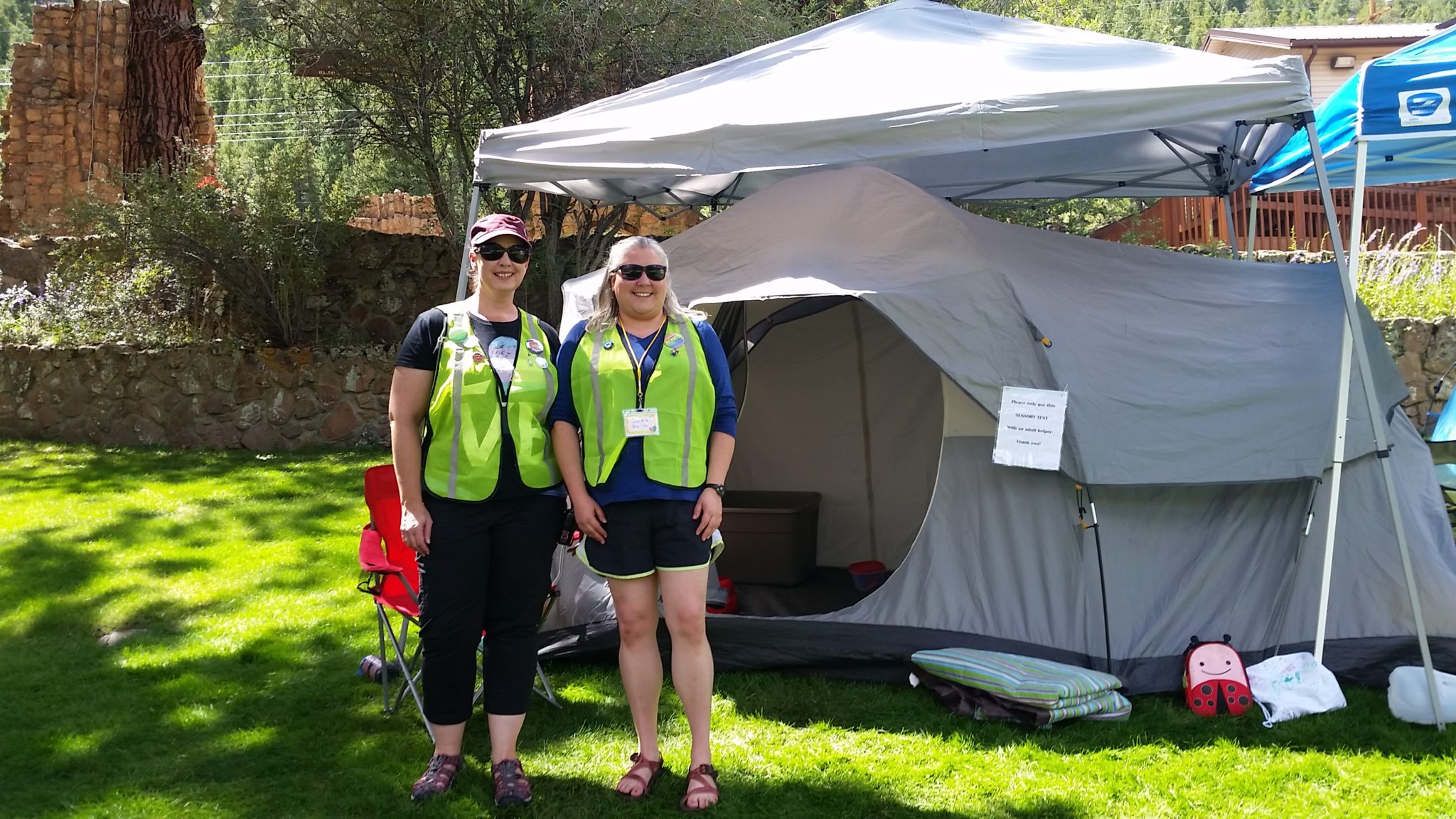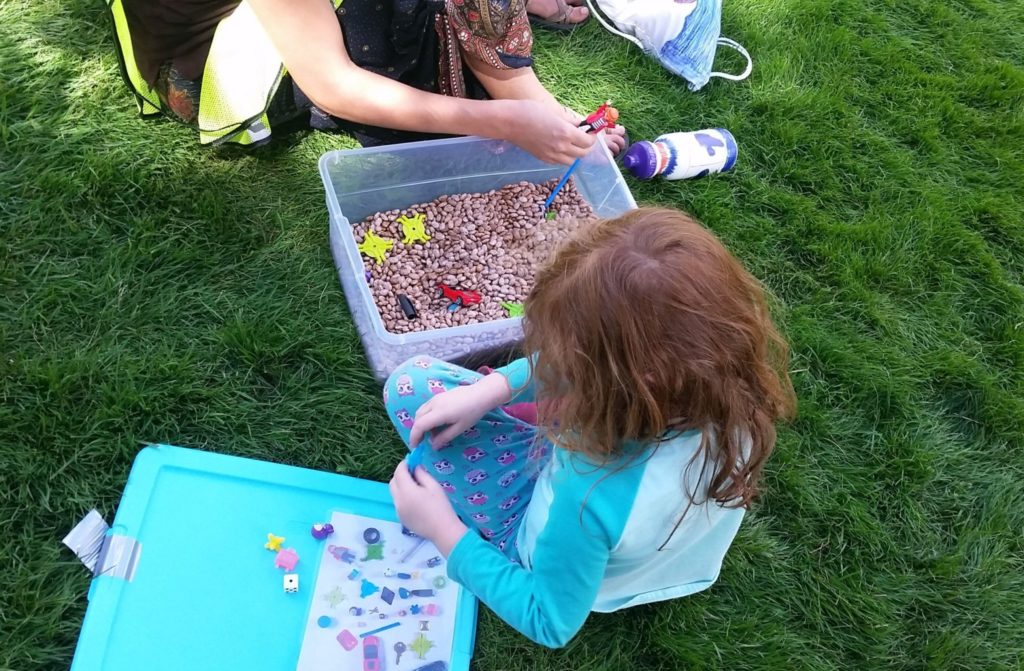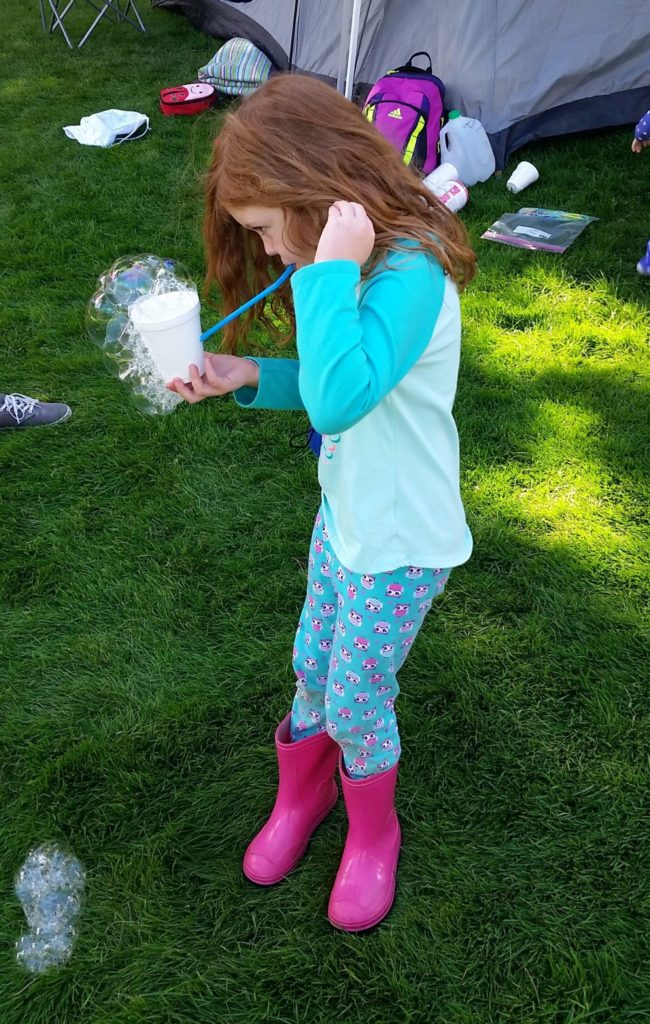Suzy Morgan earned her master’s in occupational therapy at Colorado State University in 2017 and is mother to an active 5-and-a-half-year-old. She received her undergraduate degree from CSU in anthropology in 2005 and decided to return to school to become an occupational therapist. Right before the semester began, she had the opportunity to work at a non-profit camp designed for transgender and gender expansive kids and their families, Trans Youth Education and Support or TYES Family Camp.
This Family Camp is one of many support systems that TYES offers. As a partnership with the YMCA of Boulder Valley, the Family Camp is supported by grants and funding for camp supplies and programming to keep it functioning.

What brought you to Colorado State University and to the Occupational Therapy program?
I chose the Department of Occupational Therapy at CSU because I really wanted to stay in Colorado for my family and I was impressed by the faculty and the research being conducted at CSU. I originally chose CSU for my undergraduate degree because my husband is from Fort Collins and we have supportive family in the area.
Tell us about Family Camp.
Basically, this camp is for transgender and gender expansive kids and their families. It is an opportunity for parents (and some grandparents) from around the state to gather and share resources, stories, support, and education about raising transgender kids.
To provide further support, families received information about anti-discrimination laws, and resources and training for school districts from a Human Rights Campaign representative. In addition, there was a question and answer session with the leading physician for transgender kids in Colorado (Dr. Reirden from Children’s Hospital in Aurora who sees 500+ transgender kids as patients).

It was also an opportunity for trans kids and their siblings to participate in YMCA summer camp experiences such as archery, arts and crafts, swimming, boating, nature exploration, camp fire skits, s’mores, etc., while being able to express themselves freely without fear of judgement or risk to their safety. There were 65 kids, including both trans kids and siblings. Many of the kids and their families do not share their gender transition publicly or with schools or classmates, so camp is a chance to talk about whatever they want and need to talk about with people who understand.
How did you help with this camp?
For the second year of the TYES camp, the parents decided to incorporate more skilled support for kids who needed help participating in camp. This included two OTs, an OT student (me), and three Master of Counseling students from Naropa University in Boulder. We were there to identify kids who needed a break from activities or some form of help to participate in the camp activities.
Several kids had identified sensory processing issues and diagnoses such as autism, so we developed a sensory break tent as a safe, controlled environment for kids to regulate in order to re-join activities. The activities included a quiet space with headphones and bean bag or bouncy chairs and calming activities such as bubble blowing, kinetic sand, hand manipulatives, deep pressure activities, drawing/coloring, and other sensory experiences.
We also taught the kids “Zones of Regulation” and each kid had a Zones of Regulation chart on the back of their name tag so they could identify how they were feeling and what strategies we could come up with to prepare them for participation.

In addition to working with kids during activity times, we also had the opportunity to eat meals with the families and participate in family activities such as the evening campfire skits with the YMCA staff.
What did you learn from this experience? What surprised you?
I learned that kids are kids, and having to navigate the complexity of gender identity and gender expression can be difficult, scary, and disruptive for the whole family, but that having a supportive, affirming, and accepting community and resources really makes a big difference in helping kids and their families grow together and successfully engage in school, activities, and life.
One thing that surprised me was learning how many transgender and gender expansive kids there are in Colorado. When I first began to think about transgender healthcare and OT’s role, I was focused on adolescents and young adults, but now I see how many kids would benefit from having an open and affirming OT in a school setting. I was also grateful to learn about transitioning at different life stages like childhood, pre-puberty, adolescence, and young adulthood, and what that means in terms of successful transitions, ease of transition, etc.
How did this experience along with CSU and OT help with your future goals?
This experience as well as my time at CSU-OT has affirmed my commitment to expanding OT services in emerging practice areas and with marginalized populations.
The Department of Occupational Therapy is part of CSU’s College of Health and Human Sciences.